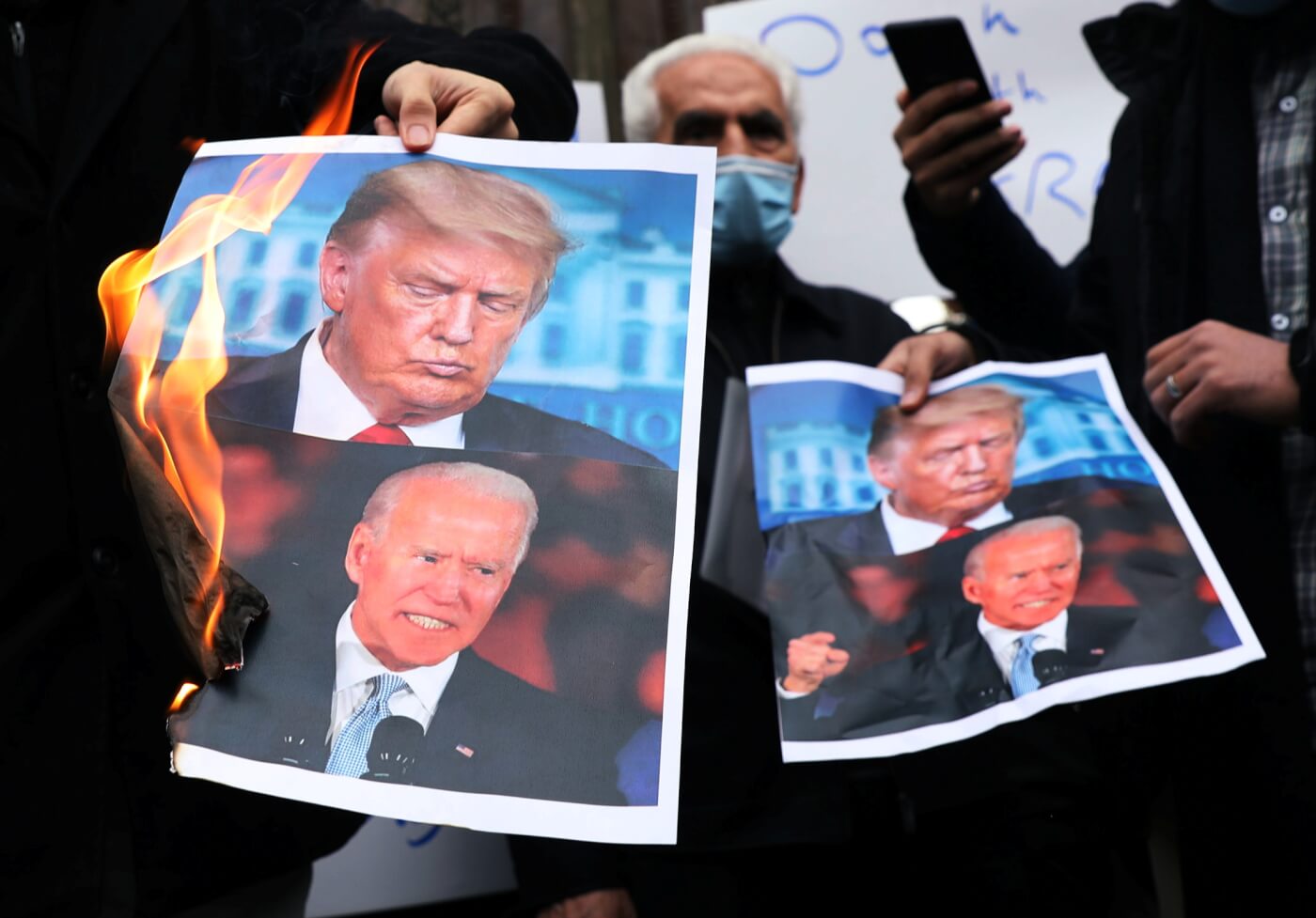Iran has sentenced an American businessman to ten years in prison, despite him initially having been acquitted by an Iranian court over a year ago.
Emad Shargi, aged 56, is the latest dual national to find himself victim to the Iranian regime’s hostage diplomacy – whereby innocent foreign and dual nationals are detained for use as bargaining chips in Iran’s foreign policy pursuits.
The news of Shargi’s sentencing comes just days before the inauguration of President-elect Joe Biden, threatening to complicate the administration’s approach to Iran. The Biden administration has mooted the easing of sanctions on Tehran – which under maximum pressure has become the most sanctioned state in the world – in return for Iran coming back into compliance with the 2015 JCPOA nuclear agreement.
Many will view the sentencing of Shargi as a power play by hardline elements in Iran, opposed to any rapprochement with the West.
Authorities convicted the Iranian-American businessman on spying charges, according to a family friend.
Emad Shargi was reportedly summoned to a Tehran court on 30 November 2020 and, without trial, was told he was guilty of espionage and was being sentenced to ten years in prison.
According to Iranian state-run media outlet, YJC, Sharghi was arrested “while illegally fleeing the country through its western borders”.
The same article appears to confirm that Shargi is being convicted on the charges of which he was fully acquitted of in December 2019, saying:
“Sharghi, who was sentenced to 10 years in prison on charges of espionage and gathering military information, had been released on bail and was trying to escape before the appeals court.”
In reality, Shargi had been cleared of all charges. In spite of this, Iranian authorities withheld his passport, forcibly ensuring he remained in Iran.
A family statement reports that Shargi has been held incommunicado since his summons in November, saying:
“It’s been more than six weeks since he was taken and we have no idea where he is or who has him. Out of caution for his well-being, we’ve never spoken publicly about his case and don’t wish to now. Please pray for Emad and for his safe return home.”
The apparent u-turn in the case of Emad Shargi, came just weeks after America elected Joe Biden and three days after the assassination of Iran’s leading nuclear scientist and senior deffence official, Mohsen Fakhrizadeh.
When approached for comment by American publication The Hill, the Biden transition team declined to comment. However, Iran’s actions in the case of Emad Shargi are likely to renew scrutiny on how the incoming administration approaches diplomacy with Tehran.
Shargi is the fourth Iranian-American currently detained in Iran, in addition to Siamak Namazi, who has been in jail since 2015, his father Baquer, who is on medical furlough, and Morad Tahbaz, an environmental activist.
Speaking during an IOHR webinar, Chinese American and former detainee, Xiyue Wang said:
“If you look at the kind of people under detention, they’re not political…This is a purely humanitarian issue, because we don’t owe them”
Iranian Judge Abolqasem Salavati, who is currently on the receiving end of U.S Treasury Department sanctions, presided over Shargi’s conviction and sentencing.
Salavati, a stalwart of Iran’s Islamic Revolutionary Court, is known for his harsh punishments and contempt for the West. A prior U.S. Treasury Department statement informs that Salavati has:
“sentenced more than 100 political prisoners, human rights activists, media workers and others seeking to exercise freedom of assembly,”
There is much debate and little consensus over how best to deal with an increasingly hostile Iran – including on the issue of hostage diplomacy. Much of the contempt directed to the West by Iran’s hardline factions is mirrored by those walking the hallways in Washington.
The Biden administration might still be incentivised to seek a warming of US-Iran relations – which have steadily deteriorated since Trump withdrew from the JCPOA in 2018. Iran will soon head to the polls for their Presidential elections and the comparatively moderate Rouhani looks set to be replaced by a hardliner. This might urge Biden to seek resolutions to some of the most pressing issues early into his tenure as President.
There are currently at least 13 dual and foreign nationals detained in Iran.
In October 2020, the International Observatory of Human Rights brought together former detainees, journalists and diplomats to discuss the best approach to take on the issue of hostage diplomacy, you can watch the webinar here:

